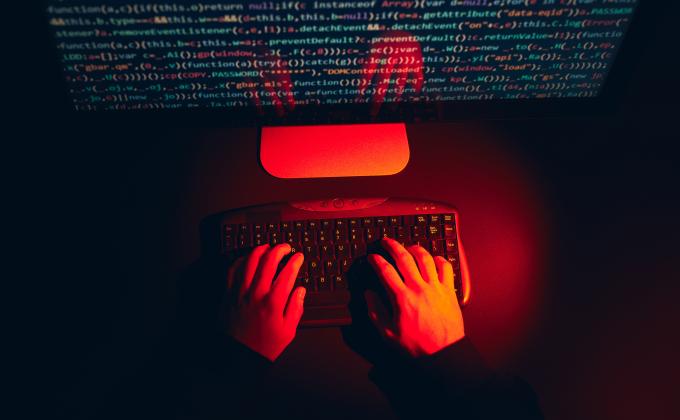An interview with Assistant Secretary General for Emerging Security Challenges David van Weel, and NATO Secretary General’s Special Representative for Women, Peace and Security (WPS) Clare Hutchinson
What key emerging security challenges (particularly related to terrorism) are currently being focused on at NATO? What initiatives are NATO prioritising in response to these?
David Van Weel (DVW): In the Emerging Security Challenges Division, we look at a wide range of threats. Some of these – such as cyber defence or energy security – have been on our radar for some time. Other areas, including emerging and disruptive technologies and data have risen on NATO’s agenda more recently.
NATO’s role in counter-terrorism has become well established over the last two decades. It focuses on maintaining awareness of the terrorist threat, supporting Allies to ensure they have the right capabilities to fight terrorism, and engagement with partners and other international organisations, as well as through relevant missions and operations. At the same time, we are keeping an eye on and addressing emerging trends in the terrorism sphere.
One example is terrorist misuse of technology. Recent years have seen an explosion of new technologies that have become commercially available. Some of these, such as drones, have been exploited by terrorists. NATO is working closely with Allies to tackle this threat and has put in place a comprehensive Programme of Work to counter unmanned aerial systems. Last year, NATO also adopted a Battlefield Evidence Policy which aims to facilitate the sharing of information obtained on NATO operations and missions – for example documents, IEDs or electronic devices – to support law enforcement purposes in Allied countries. This information may eventually help to bring returning foreign terrorist fighters to justice.
How has NATO’s WPS agenda, and broader attention to gendered considerations in their work, informed how we understand these emerging security challenges, and NATO’s approach to these?
DVW: NATO is strongly committed to the WPS agenda, including in the context of emerging security challenges, such as counter-terrorism. Consequently, our Action Plan calls for the integration of gender perspectives in all of NATO’s counter-terrorism efforts. We acknowledge the many different roles that women can play within terrorist groups, be it as perpetrators, supporters, recruiters, or by passing on dangerous ideology to the next generation of terrorists. While men still remain the main perpetrators of terrorist activities, there has been a gradual increase in the number of women arrested on terror-related offences. Women may also provide some tactical advantages, as female suicide bombers are more likely to pass through security checkpoints unbothered, making it easier for them to attack soft targets. At the same time, women are key to counter-terrorist activities, bringing unique perspectives and skills to the table. Having the full picture of these various roles is essential for understanding the terrorist threat, which forms the basis for effective counter-terrorism policies.
Integration, inclusiveness and integrity are the guiding principles of NATO’s WPS work. Which of these three pillars has your Division advanced the most? How are these pillars reflected in the work of your Division?
DVW: Looking at my Division, I can say that we have advanced a lot on all three pillars of the policy - integration, inclusiveness and integrity. I am lucky to lead one of the youngest and most gender-balanced Divisions at NATO with two active Gender Focal Points that are helping us to advance this important agenda. Integration is probably the area in which we have made the greatest strides over the last years, actively seeking to weave gender considerations into key strategic policy documents and programmes. This includes not only our Counter-Terrorism Action Plan, but also training and capacity-building efforts with partners, as well as activities under the Science for Peace and Security Programme.
Clare Hutchinson (CH): Integration, Inclusiveness, and Integrity are mutually reinforcing principles and we have made important progress across the board. There is not enough progress on all – and there is much more to do. However, there has been genuine progress in all of the areas. We increased the level of attention on integration – with more gender perspectives being integrated into various policies and doctrine – including on gender inclusive language. On integrity we have adopted the first ever NATO policy on preventing and responding to sexual exploitation and abuse that is being implemented at this moment. And on inclusiveness we are incrementally improving our numbers of servicewomen and women in NATO’s International Staff, including at leadership levels. So we have made progress across all three principles – and there is more to do on all fronts.
Where is NATO, and your Division still falling short in relation to these pillars, and what steps can be taken to address these?
DVW: My Division is currently looking into a number of new and emerging security issues, which is why I think that integration is also the area in which we can do a lot more moving ahead. For example, I want to make sure we reflect gender perspectives in our upcoming work on emerging and disruptive technologies, and that we emphasise the importance of sex-disaggregated data in our upcoming data policy. Looking into the gendered impacts of climate change will be another area to tackle for us in the future. In order to be able to address these issues properly, I think that it will be important to make sure that all staff are aware of the key elements of the WPS agenda, gender equality principles, and understand the importance of integrating gender perspectives into their day-to-day work. This will strengthen the foundation to advance integration.
Through your experience with NATO or the Dutch government prior, how (or has) a gendered lens, and the adoption of these WPS principles, led to positive developments in security policies, practices or operations? Please offer a specific example.
DVW: First of all, I am really pleased to see the level of engagement across NATO, and specifically in my areas of work on the WPS agenda. There is now a strong consensus that gender perspectives need to be taken into consideration throughout all of our efforts. Looking through a gender lens can encourage colleagues to reflect critically on their work and may open up new perspectives. In the field of Artificial Intelligence for example, gender biases or stereotypes may be perpetuated via data sets used to train the algorithms. While these are great developments, we need more reviews and assessment to properly measure the concrete impact that the inclusion of gender perspectives has on the impact of our various policies.
This role in NATO of Special Representative for WPS was established in 2012 with you now being the third Special Representative. In this time, how has the thinking within NATO evolved as it relates to WPS? In specific relation to WPS, counter-terrorism, and P/CVE?
CH: Establishing the role of Special Representative was an important step towards taking this work further, but NATO’s experience with WPS started well before 2012. We agreed our first policy on WPS in 2007 and this work has continuously evolved. In the early days, our focus was primarily on incorporating gender into our operations – in Afghanistan, for instance – but the more we have done this work the more we have seen how this applies to all that we do – including to counter and prevent violent extremism and terrorism. This is reflected in our current policy on WPS. It is also included in the 2019 Action Plan on Enhancing NATO’s Role in the International Community’s Fight against Terrorism with the aim of strengthening cooperation with partners and taking account of the many different roles women play in relation to terrorism.
DVW: As I mentioned earlier, our Counter-Terrorism Action Plan, endorsed in late 2019, reflects a strong gender dimension. And while NATO itself does not play a pronounced role in preventing and countering violent extremism (P/CVE) efforts, NATO’s Science for Peace and Security Programme has supported several activities in this area, including on gender-sensitive research exploring the role of women in P/CVE efforts. These activities have helped to sharpen our thinking around WPS and counter-terrorism.
In recent years, NATO has had more noticeable initiatives which have focus on the status of women in relation to security (e.g. NATO’s first Centre of Excellence-Defence Against Terrorism conference focused on women in terrorism and counter-terrorism, which Joana had the privilege of attending). What key initiatives would you highlight that NATO is currently working on as related to women in terrorism and counter-terrorism?
CH: The WPS agenda in NATO has evolved and adapted to a changing geo-political environment, which includes the increase of global terrorist activities. In addition to participating in the COE seminars that you have mentioned, we have steadily worked with the Emerging Security Challenges (ESC) Division to shore up efforts that recognise women as both victims and agents in terrorism. Currently, my team is working closely with ESC to organise a series of events on the nexus between gender and terrorism. We are also working to strengthen gender perspectives in the forthcoming update of the Action Plan on Enhancing NATO’s Role in the International Community’s Fight against Terrorism.
DVW: The role of women in terrorism and counter-terrorism has been something NATO has considered for quite some time already, but we are now making a push to address the issue more systematically. We are having a dedicated discussion with Allies on the subject to enhance awareness and understanding of gender and terrorism and to explore what more we can do in this area. We will also make sure to include gender considerations prominently in our update of the Counter-Terrorism Action Plan, which is due towards the end of this year. Moreover, gender and terrorism is a regular topic of discussion in our staff talks with other international organisations as well as with partner countries. And last but not least, the NATO Centre of Excellence Defence Against Terrorism that you mentioned in your question is currently working on the third annual workshop on gender and terrorism.
What structural changes within NATO would help to achieve gender equality?
CH: Gender equality is about addressing structural imbalances that prevent women or men from contributing in any shape or form. We continuously look at how to address this and drive change to support the advancement of gender equality. We have structures in place to enhance gender equality like task forces and Gender Focal Points, among civilian and military staffs. Gender Advisors are deployed to provide advice and support on incorporating gender perspectives in missions and operations. We have tailored training and education programmes and systems to protect from abuse and address cultural bias. The structures are in place. What we need to do better is identify where they need reinforcing.
What does gender mainstreaming look like for both genders at NATO?
CH: Unfortunately it is women who are often the most marginalised from security and defence conversations and other security issues. That is why mainstreaming is so important: integrating gender perspectives into our policies, plans, and programmes. So if we’re talking about climate and security, we’re looking at how women and men might be affected differently. Gender equality is about equalising. It is not about women only. So whatever needs to be done to make sure that voices, opinions and perspectives of women and men are equally integrated, that is what we do.
Do you have any final thoughts or statements you would like to make?
DVW: Thank you so much for the opportunity to discuss emerging security challenges, and especially terrorism from a gender perspective. It is a really interesting and important topic that plays into all the areas of work in my Division, and I hope to continue our conversation!
This interview was conducted by Dr. Joana Cook and Dr. Vanessa Newby on behalf of ICCT and WIIS-NL which sits within Leiden University’s Institute of Security and Global Affairs (ISGA).
Photocredit: ICCT/Canva









